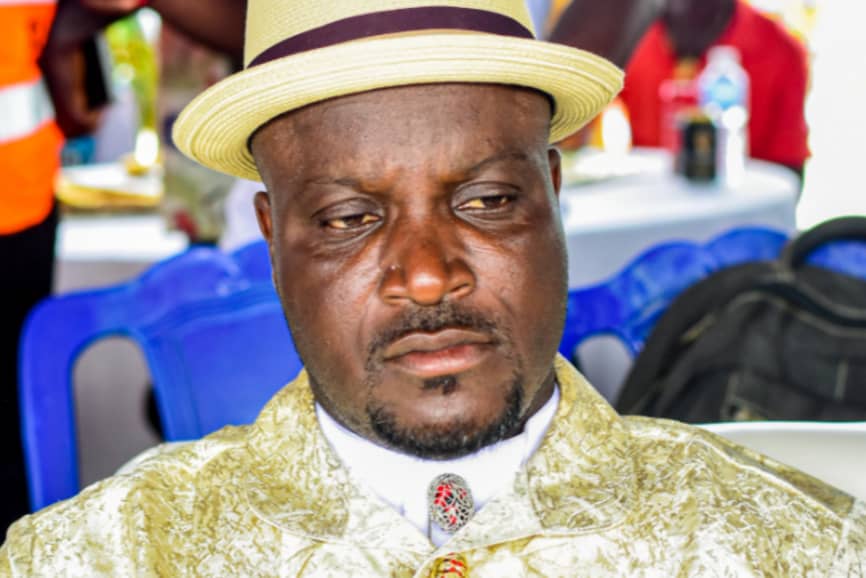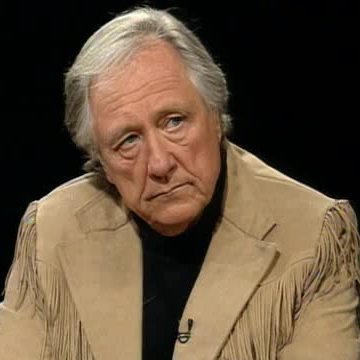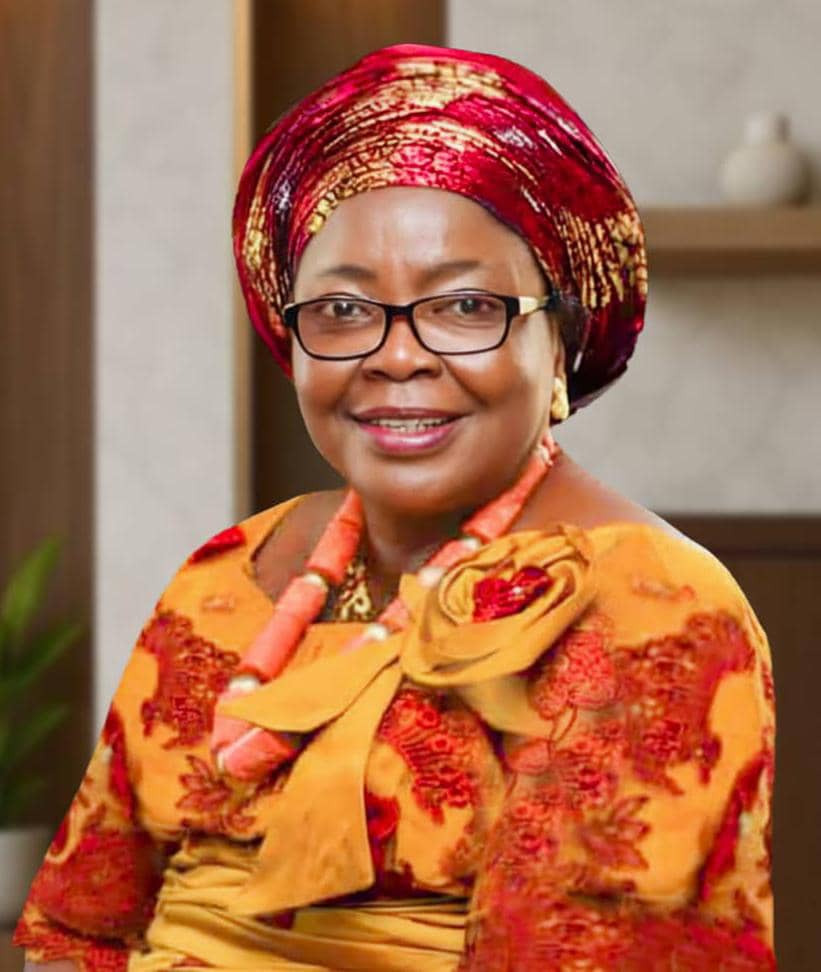ISSA HAYATOU: The Beacon of African Sports and Administrator Takes A Bow at 77
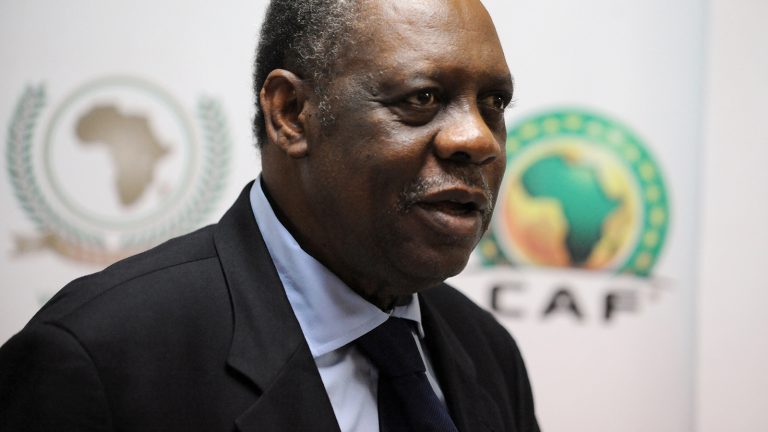
Did you know that Issa Hayatou is the fifth President of the Confederation of African Football (CAF) and that the Hayatou family who are traditional holders of the sultanate wield much political influence in northern Cameroon?
Issa Hayatou, born on 9 August 1946, in Garoua, Cameroon (in what was then French Cameroon), passed away in Paris, France, on Thursday, 8 August 2024 at the age of 77, a day before his 78th birthday. The football administrator, who was a key figure in African football for almost three decades (having served as President of the Confederation of African Football, CAF, between 1988 and 2017) is the son of a local Sultan, and became a middle distance runner and physical education teacher. Hayatou also had a successful career as an athlete, becoming a member of the Cameroonian national squads in both Basketball and Athletics, and holding national record times in the 400- and 800-metre running from 1964 to 1971.
Hayatou was married with four children. The Hayatou family are traditional holders of the sultanate (Lamidat, from the Sokoto Caliphate's traditional Fula title Lamine) of Garoua. Many relatives have acceded to powerful positions in Cameroonian society, most notable was Issa's brother Sadou Hayatou, a former Prime Minister of Cameroon and longtime high official under Cameroon president Paul Biya, who was among those tapped to succeed him. The Hayatou family continue to wield much political influence in northern Cameroon.
In 1974, aged just 28, Hayatou became Secretary General of the Cameroonian Football Federation, and Chair of the FA in 1986. As chair, he was chosen the same year to sit on the CAF Executive Committee. Following the retirement of Ethiopia's Ydnekatchew Tessema from the CAF presidency in August 1987, Hayatou was elected as the fifth president in the body's history.
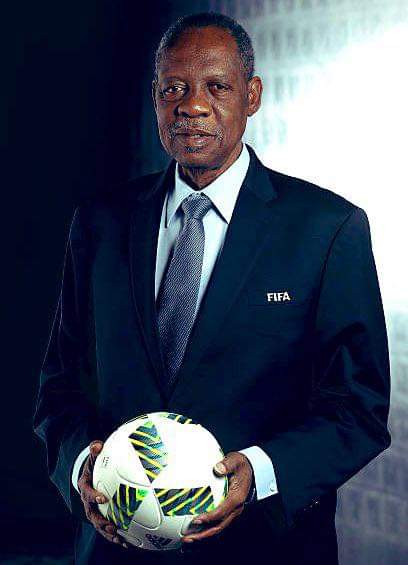
As President of CAF for almost three decades, Hayatou oversaw particularly successful FIFA World Cup appearances by Senegal, Nigeria, and Cameroon, and pushed for African places in the finals to increase from two to five, with the 2010 World Cup in South Africa seeing the hosts garner an automatic sixth spot for an African team.
Hayatou presided over both the bid and the organising committee for the 2010 games, the first in Africa. The African Cup of Nations finals expanded from 8 to 16 teams, in a confederation of over 50 nations in six zones and five regional confederations. Club competitions have undergone a similar growth in both numbers and scale, with more clubs participating in the African Cup of Champions Clubs, the CAF Confederation Cup (begun in 2004 for national cup winners and high-placed league teams), the CAF Cup, and the CAF Super Cup. There has also been an expansion outside men's football, with the CAF overseeing youth, women's, futsal, and beach soccer competitions.
One of the major aims of Hayatou's presidency in the late 1990s was to provide incentives to African football clubs which would stem the flow of African players to Europe; an initiative which met with little success. Hayatou couched some criticism of the uneven flow of football 'resources' in colonial terms, saying that "rich countries import the raw material – talent – and often send their less valuable technicians", an implied criticism of foreign coaching staffs employed by most African national sides.
A September 1997 initiative negotiated by Hayatou with UEFA saw the payment of fees to African governing bodies and clubs for African-born players working in Europe. This was followed by the Meridian Project signed in December 1997 with UEFA, which was to provide cash payments to African National Associations every other year, and created the UEFA–CAF Meridian Cup.
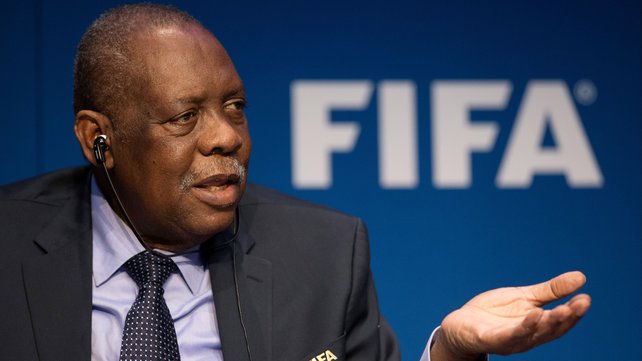
The 1999 Goal Project created with FIFA gives 46 African FAs financial support worth one million dollars over four years. These negotiations, regardless of their impact on African club football, forged a close relationship between UEFA leaders and Hayatou, and led to UEFA's backing of Hayatou's nomination to replace Sepp Blatter as head of FIFA in 2002. Blatter, supported by the American and Asian confederations, defeated Hayatou by 139 votes to 56.
In November 2010 he was alleged by the BBC to have taken bribes in the 1990s regarding the awarding of World Cup television rights. The IOC announced it would investigate him. Hayatou took charge of FIFA, as the acting president following the 2015 FIFA corruption case involving the previous president Blatter who was banned from all football-related activities. He was FIFA's acting president until 26 February 2016 when Gianni Infantino was elected to the position. He was also a member of the International Olympic Committee (IOC).
On 16 March 2017, he lost his seventh re-election campaign to Malagasy challenger, Ahmad Ahmad, ending Hayatou's 29-year reign as the CAF President. On 24 May 2017, he was appointed President of the National Football Academy by the president of Cameroon, Paul Biya.
In his administrative career, Hayatou was the Coordinator-Professor at the Lycée Leclerc, Yaoundé (1973–1974); General Secretary of the Cameroonian Football Federation (1974–1983); Director of Sports of Cameroon (Ministry of Youth and Sports, 1982–1986); President of the Cameroonian Football Federation (1985–1988); Member of the Cameroonian Football Federation Executive Committee (1986); President of the Confederation of African Football (1988–2017), Member of the FIFA Executive Committee (1990), FIFA Senior Vice-President.
In 1992, he was President of the Organising committee of the Football at the Summer Olympic and FIFA competitions (cue FIFA Competitions till 2006); Vice-President of FIFA Committee for Security and Fair-Play; Member of the World Cup Organising Committee; a Member of the Women and Sport Committee of the International Olympic Committee; Head of the Cameroonian sports delegations on several sporting occasions (1997); an Elected member of the International Olympic Committee during the 121st Moscow session (2001) and Acting President of FIFA (2015–2016).
On 3 November 2007, Hayatou was awarded an honorary degree from Ladoke Akintola University of Technology in Ogbomosho, Oyo State, Nigeria.
#penglobalpersonality #sports #CAF #IssaHayatou
